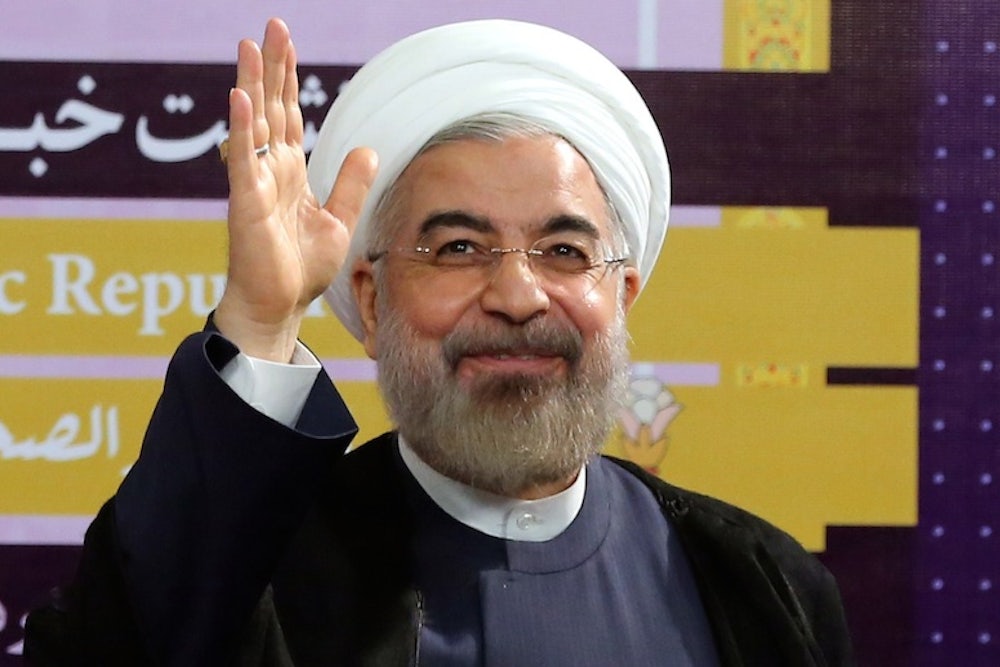When it comes to the mess in Iraq, there is plenty of blame to go around in Tehran, Washington, and most of all Baghdad—blame for strategic blunders and tactical bullying. In all three capitals, the chickens of past follies have come home to roost, giving rise to a dangerous reality on the ground, a virtual Balkanized Iraq, a politicized blame-game, and drastically different narratives about what is happening and how to find a way out of the morass. A murderous rag-tag army of Salafists from around the world, on an apparent rampage against any Muslim who is not a Salafi Sunni, have succeeded in laying bare the fissures in the façade of security in Iraq and Syria. They have also begun to expose the potential long-term devastating consequences of the Obama administration’s early inaction in the face of Syrian President Bashar al-Assad brutalities—when he used chemical weapons and heavy artillery against peaceful demonstrators—of Iran’s intervention in Syria, and of Sunni states’ support for radical Salafism as an antidote to Shiite power in Iran, Lebanon, and Iraq.
As in virtually every domain, Tehran and Washington are domestically riven by different views about the sources and the solution to the crisis in Iraq, and whether Iran and the U.S. should cooperate, if not coordinate efforts, to save the Shiite majority government of Iraqi Prime Minister Nouri al-Maliki. In Washington, even senators John McCain and Lindsey Graham can’t agree on how to criticize the Obama administration. In Tehran, the radical conservatives—consisting of many in the Revolutionary Guard (IRGC) and clerics close to Supreme Leader Ali Khamenei—see the Islamic State in Iraq and Syria (ISIS) as merely the concoction of the U.S.-Israel-Turkey-Qatar–Saudi Arabia alliance that, in this scenario, is using Salafis to weaken the Islamic Republic of Iran (and its allies in Syria and Lebanon). Their recommended policy is a repeat of their past bombast: defeat the Salafists by strengthening the Assad-Maliki Shiite axis, and help Maliki organize and mobilize Shiite militias to fight the Sunni insurgency. The radical conservatives chastise Iranian President Hassan Rouhani and his allies for gleefully using the “pretext” of the ISIS threat to normalize relations with the U.S. One website close to the IRGC asks, apparently sardonically, why ISIS has never killed an American, while another claims that ISIS leaders live in Turkey and are protected by the country’s intelligence agencies.
On the other hand, another narrative in Tehran is offered by Rouhani and former President Akbar Hashemi Rafsanjani's increasingly assertive camp, which is trying to distance itself from the policies of the Mahmoud Ahmadinejad era by arriving at a long-term agreement with the P5+1 on the nuclear program (Iran insists work has already begun on drafting a final agreement), and by normalizing relations with the West: England has announced that it will reopen its embassy in Tehran, Iran and the U.S. are on the verge of direct talks (not long ago publicly declared as a taboo), and there are hints about a coordinated effort against ISIS Salafists. More than once, the Rouhani-Rafsanjani camp has declared the Salafi threat to be rooted in extremism and a threat to all Muslims.
Yet in spite of two sides' desire and clear need for cooperation in Iraq, there are serious issues—other than the nuclear program—that render it hard to realize. There are in fact competing, if not conflicting, interests that limit the nature of a tactical alliance between the countries in dealing with Iraq. Both in Iran and the U.S., as well as the Middle East region, there are powerful forces and countries that feel threatened by any Iran-American rapprochement. Iran wants to keep Iraq together, keep Shiites if not Maliki in power, and keep the IRGC’s extensive network of militia and economic presence in Iraq intact. The U.S. clearly has no love lost for Maliki and his sectarian politics, is gingerly moving toward favoring a loosely federated Iraq, and certainly does not want to encourage, or enable, Iran’s increased power in Iraq. Moreover, the two countries find themselves on opposing sides of the war in Syria. While Rouhani took four days—only after much cudgeling by conservatives—to congratulate Assad on his “election” victory, radical conservatives keep insisting that keeping Assad in power is a key strategic goal of the Islamic regime. In spite of these tensions, the specter of ISIS haunting the Levant is strong enough to bring the old foes together, if only briefly, to try to put the genie of Salafi extremism back in the bottle.
